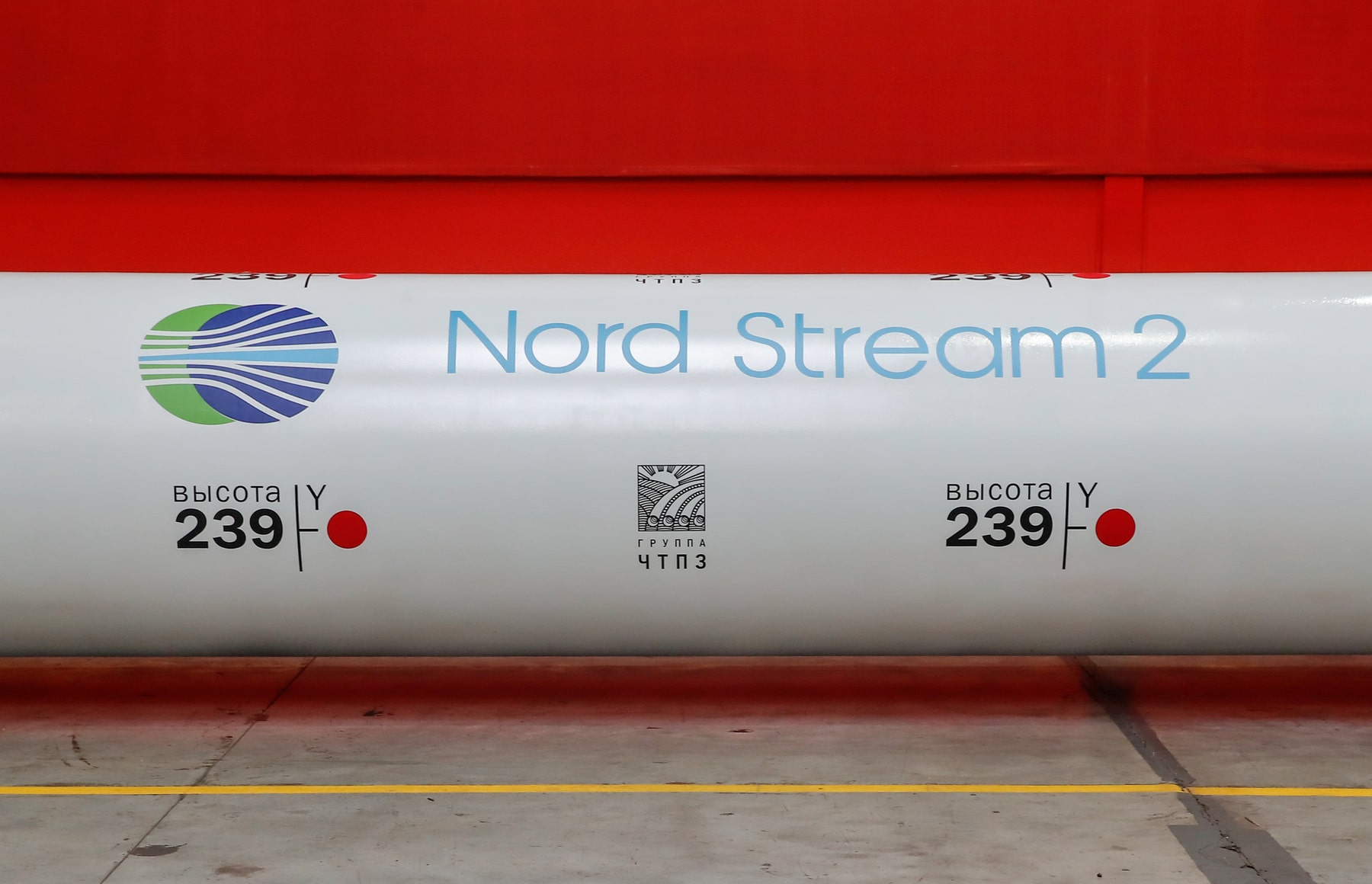“The United States has just declared what amounts to economic warfare on her allies in western Europe.” This quote aptly captures the current mood in the EU. But it was in fact uttered by the French foreign minister in 1982. Back then, western European ministers were outraged by the Reagan administration imposing sanctions. These took aim at the 3,700-mile pipeline linking Siberia to Western Europe. Even though the Siberian pipeline crisis happened more than three decades ago, the case bears striking similarities to the ongoing tensions over the Nord Stream 2 pipeline and there are lessons to be learnt for policy makers today on both sides of the Atlantic.
“The deal of the century”
Often dubbed a “gas-for-pipes” deal, the 1982 Siberian pipeline aimed to supply Soviet gas in exchange for $15 billion worth of heavy machinery and large-diameter steel pipes from Europe. The Europeans hoped this would ease high unemployment rates and diminish energy dependency on the Middle East. Washington, though, saw it through a security lens. Soviet energy supplies made Europe vulnerable to a potential cut-off. Unable to convince its European allies about this, the Reagan administration imposed extraterritorial sanctions on European companies involved in the provision of oil and gas technology as well as lucrative credits to the Soviet Union.
After more than three decades, history seems to be repeating itself. The Nord Stream 2 pipeline led by Gazprom aims to supply natural gas shipments to Germany. It is strongly opposed by the U.S. To deter its European partners and derail the project, the outgoing Trump administration imposed extraterritorial sanctions on technology transfer and financing. The extra sanctions recently approved in the National Defence Authorization Act FY 2021 will increase pressure — targeting insurance and certifying companies.
Divisive issues
In his prophetic book Ally versus Ally published in 1987, Antony J. Blinken, a current nominee for Secretary of State in the incoming Joseph Biden administration, warned that “it might be tempting to view the alliance crisis over the [Siberian] pipeline as an unpleasant but insignificant melodrama that should now be relegated to a footnote in history books. That would be a mistake.” The alliance crisis in 1982 raised fundamental questions. And those are still highly relevant today.
Right to the end of Cold War, western Europeans believed in the economic and political benefits of commerce with the Soviet Union. Most European governments viewed gas deals as a project of interdependence. In West Germany, fostering energy and economic links were an important precondition for rapprochement with East Germany and Eastern Europe. The spirit of Willy Brandt’s Ostpolitik centered on positive economic interdependence bringing peace and stability to Europe.
In contrast, the U.S. held a hawkish position on economic ties with the Soviet Union. Lacking substantial economic contacts, Washington viewed those of Europe with great suspicion. Reagan administration officials believed energy was too strategic for pure commerce. Primary concerns were that any hard currency earned from any gas deal would finance the Soviet military.
Though the times of the Cold War have passed, these two visions continue clashing: Washington adamantly opposes Nord Stream 2, believing it will make Europe reliant on Russian energy supplies. Moscow could use this as a tool of coercion and political leverage. The context of Russia’s 2014 annexation of Crimea — and Western sanctions in response — makes the EU’s economic rapprochement with Moscow over Nord Stream 2 particularly thorny. The pipeline would deprive an economically weakened Ukraine of lucrative gas transit fees. CEE countries affected by a stark historical experience with Russia — like Poland or the Baltic countries — strongly share U.S. concerns.
Extraterritorial reach
In their nature and purpose, the Siberian pipeline sanctions are strikingly like those of Nord Stream 2. Both sanctions episodes underline the disagreements over extraterritorial reach. Both are characterised by the lack of sanctions coordination and the unwillingness to absorb their costs.
In 1982, the U.S. linked its economic sanctions to Poland’s declaration of martial law. The Europeans failed to find clear evidence of Soviet involvement in the Polish crackdown. They viewed the American measures as a pretext to target the pipeline. Hoping for a diplomatic solution, the Europeans adopted a wait-and-see approach. Angered by the allies’ refusal to follow suit, the U.S. Commerce Department interpreted the sanctions as extraterritorial and retroactive. The measures were extended to foreign subsidiaries using American licensed technology, leaving dozens of European companies blacklisted by the U.S.. In the same vein, the Trump administrative abandoned coordination with European allies, introducing extraterritorial sanctions which could potentially target more than 80 European companies.
The unwillingness of the U.S. to bear the costs of sanctions is traceable in both cases. The Siberian pipeline case showed that the reluctance to bear the brunt undermined the US’ credibility and ultimately predetermined the sanctions’ failure. In addition, the unilateral measures suffered a particular legitimacy crisis when Reagan lifted the grain embargo on Soviet Union to fulfil his campaign promise to American farmers. This was seen as highly hypocritical by allies: Washington pressured Europe to cut its energy trade with Moscow in the name of security, but was unwilling to do so when its own economic interests were at stake. The unexpected level of resistance from its allies prompted the Reagan administration to scrap the pipeline sanctions. As a face-saving solution, it was announced that the U.S. and Europe would conduct studies about the overall economic strategy towards the Soviet Union.
So this sanctions episode should serve as a cautionary tale to the Nord Stream 2 case: as the U.S. sees increasing oil imports from Russia, some question the credibility of the sanctions and the U.S.’ willingness to bear the pain.
War by other means
As Blinken warned, “Unless these [divisive] issues are thoroughly addressed, it is only a matter of time before a new crisis shakes the alliance”. As the Nord Stream 2 pipeline shakes the alliance again, the crisis should be seen as an opportunity to strengthen transatlantic ties and improve intra-European dialogue. While the U.S. can achieve foreign policy objectives with unilateral measures, the long-term consequences of another alliance crisis outweigh short-term wins.
Since the Cold War, the gas market has become more liquid and liberalised. This hasdeprived the piped gas suppliers their dominant position. While some countries like Bulgaria and Finland remain highly reliant on Russian gas, others like Lithuania have invested in the diversification of their energy sources, routes and suppliers. The EU has developed robust regulatory powers that have already proven to be effective in curtailing Gazprom’s geopolitical ambitions. What was valid in 1982 remains relevant now: market measures can sometimes do more than heavy-handed extraterritorial sanctions against allies. Other geo-economic measures are likely to be more effective, while keeping the collateral damage to a minimum. This can include building more interconnectors in Eastern Europe or developing LNG infrastructure. Equally there are ways to better link Ukraine to the European gas market. Finally, the rollout of the EU’s Third Energy Package which includes unbundling, third-party access and requirement on transparent tariffs would be the most graceful way to mitigate geostrategic risks coming from Nord Stream 2 or any other project for that matter.










